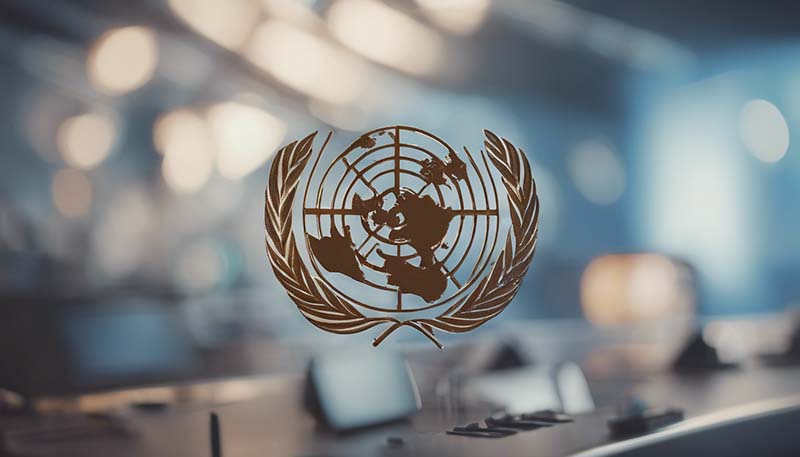The United Nations (UN) has long been at the forefront of international cooperation and diplomacy,addressing a wide range of global issues from peacekeeping to environmental protection.One area where the UN's role has become increasingly relevant is in the realm of space governance.As space exploration and utilization continue to advance,it is essential to understand the various ways in which the UN contributes to the development and implementation of policies and regulations governing space activities.
Space governance encompasses a broad spectrum of activities,including the regulation of satellite launches,the management of space debris,the protection of celestial bodies,and the promotion of international cooperation in space exploration.The UN plays a crucial role in shaping and enforcing the rules that govern these activities,ensuring that they are carried out in a manner that is safe,sustainable,and equitable for all nations.
Historical Background
The UN's involvement in space governance dates back to the early days of the space age.In 1961,the UN General Assembly established the Committee on the Peaceful Uses of Outer Space (COPUOS),which serves as the primary forum for international cooperation in space matters.COPUOS is responsible for promoting international cooperation in the peaceful uses of space,ensuring that space technology and its applications are accessible to all countries,and fostering the development of legal frameworks for space activities.
Over the years,the UN has played a pivotal role in the development of several key space treaties and principles.The most notable of these is the 1967 Outer Space Treaty,which serves as the foundation for international space law.This treaty establishes the basic principles governing the exploration and use of outer space,including the prohibition of national claims to celestial bodies,the requirement for the peaceful use of space,and the obligation of states to avoid harmful contamination of space and celestial bodies.
Major UN Entities Involved in Space Governance
1.Committee on the Peaceful Uses of Outer Space (COPUOS)
COPUOS is the primary UN entity responsible for addressing space governance issues.It is comprised of 90 member states and meets annually to discuss and coordinate international space policy. COPUOS has several subcommittees,including the Scientific and Technical Subcommittee and the Legal Subcommittee,which focus on specific aspects of space governance such as space debris mitigation,satellite navigation,and the development of international space law.
COPUOS has several subcommittees,including the Scientific and Technical Subcommittee and the Legal Subcommittee,which focus on specific aspects of space governance such as space debris mitigation,satellite navigation,and the development of international space law.
2.Office for Outer Space Affairs (OOSA)
The OOSA serves as the secretariat for COPUOS and is responsible for implementing its decisions and promoting international cooperation in space matters.OOSA provides technical assistance to developing countries,organizes workshops and conferences,and facilitates the exchange of information and best practices among space-faring nations.
3.International Court of Justice (ICJ)
The ICJ,as the principal judicial organ of the UN,plays a role in resolving disputes related to space activities.The court is responsible for interpreting and applying international space law,ensuring that states comply with their obligations under the Outer Space Treaty and other relevant agreements.
Challenges and Emerging Issues in Space Governance
As space activities continue to grow and evolve,the UN faces several challenges in its efforts to effectively govern and regulate the realm of outer space.Some of the most pressing issues include:
1.Space Debris Management
With thousands of satellites in orbit and more being launched every year,the problem of space debris is becoming increasingly severe.The UN plays a crucial role in promoting the development of guidelines and best practices for the mitigation of space debris,as well as encouraging states to adopt these measures in their space activities.
2.Ensuring Equitable Access to Space Resources
As the commercial exploitation of space resources,such as minerals and other materials found on celestial bodies,becomes a reality,the UN must ensure that these resources are accessed and shared equitably among all nations.This will require the development of new legal frameworks and the establishment of mechanisms to prevent the monopolization of space resources by a few powerful states or corporations.
3.Cybersecurity and Space Warfare
The increasing reliance on satellites for communication,navigation,and other critical services has raised concerns about the vulnerability of space assets to cyber attacks and other forms of interference.The UN must work to establish norms and rules for responsible behavior in space,including the prevention of the weaponization of space and the development of robust cybersecurity measures to protect space infrastructure.
Conclusion
The role of the United Nations in space governance is more important now than ever before.As the world becomes increasingly interconnected and dependent on space-based technologies,it is essential that the UN continues to lead the way in developing and enforcing the rules and regulations that ensure the safe,sustainable,and equitable use of outer space.By fostering international cooperation and promoting the responsible use of space,the UN can help to ensure that the benefits of space exploration and utilization are shared by all nations,now and in the future.
Leave Your Comments